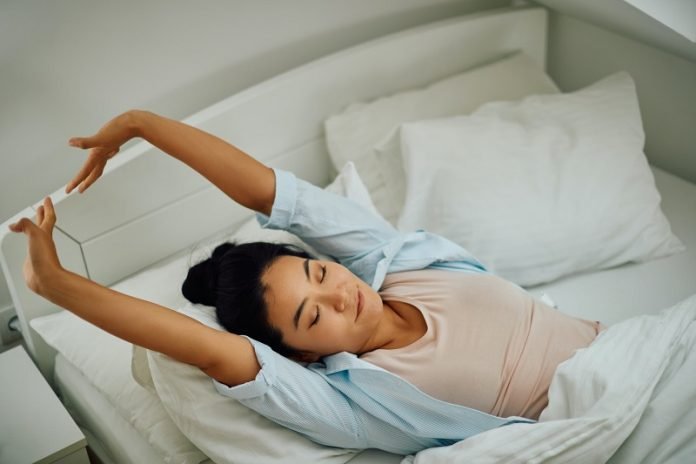
Sleep apnea is a sleep disorder where people have trouble breathing while they sleep. Often, they snore loudly and wake up frequently during the night.
This isn’t just annoying; it can be dangerous. People with sleep apnea are at higher risk for health issues like high blood pressure, stroke, heart disease, and type 2 diabetes.
A machine called a Continuous Positive Airway Pressure (CPAP) machine is often recommended to help people breathe better while they sleep.
But now, researchers are finding that this machine can do more than just help you breathe better at night.
The Study and Its Surprising Findings
The research, led by Professor Thorarinn Gislason from The National University Hospital of Iceland, looked at 822 people who had moderate to severe sleep apnea.
Before they started using the CPAP machine, they answered questions about their sleep and other symptoms like heartburn at night. They also took part in an overnight sleep study.
Two years after they started using the CPAP machine, the researchers checked back in with them. What they found was pretty interesting.
People who used the CPAP machine regularly had about 42% fewer episodes of night-time heartburn. They also had way fewer symptoms like productive morning cough and chronic bronchitis.
The researchers think that because the CPAP machine keeps the upper airway open, it might also help keep the stomach acid from coming up into the throat, which is what causes heartburn.
This could be why people using the CPAP machine also had fewer respiratory symptoms like coughing and wheezing.
What This Means and What You Can Do
So, if you have sleep apnea, this study shows that using a CPAP machine regularly can not only help you sleep better but can also help with other health issues like heartburn and coughing.
Professor Gislason mentioned that many people might not even know they have sleep apnea. Common signs to watch for include loud snoring, waking up often during the night, and feeling tired during the day.
Now, this study suggests that if you’re also experiencing symptoms like night-time heartburn, coughing, and wheezing, it might be a clue that you have sleep apnea and should talk to a doctor about it.
Professor Winfried Randerath, a specialist in sleep disorders who was not part of this study, emphasized how important it is to get diagnosed and treated if you think you have sleep apnea.
The benefits of using the CPAP machine go beyond just getting a good night’s sleep; it can also reduce other health risks.
So, if you think you might have sleep apnea, don’t ignore it. Talk to your doctor. And if you’re already using a CPAP machine, try to use it regularly. It could offer more benefits than you realize.
If you care about sleep, please read studies about herb that could help you sleep well at night, and these drugs could lower the severity of sleep apnea by one-third.
For more information about sleep, please see recent studies that coffee boosts your physical activity, cuts sleep, affects heartbeat, and results showing how to deal with “COVID-somnia” and sleep well at night.
The study was published in ERJ Open Research.
Follow us on Twitter for more articles about this topic.
Copyright © 2023 Knowridge Science Report. All rights reserved.



